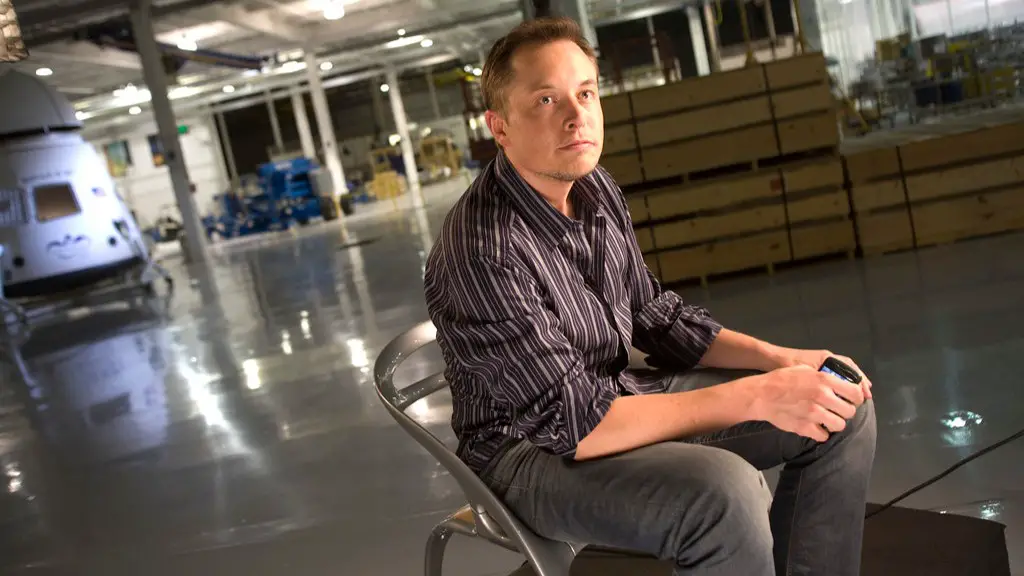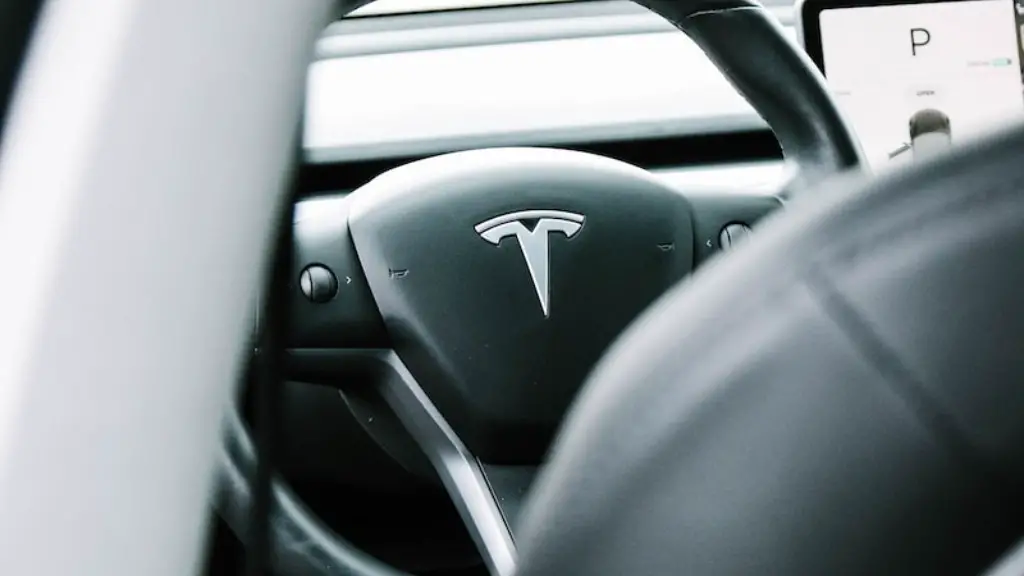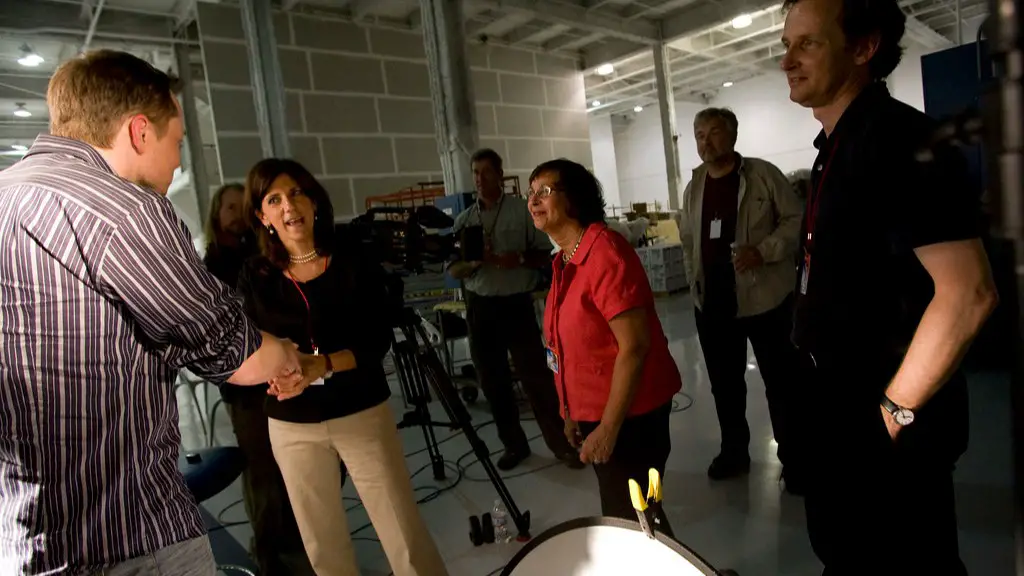Introduction: Elon Musk wants to make human colonization of Mars a reality. He is the founder and CEO of SpaceX, a private aerospace company that is focused on creating a sustainable human presence on Mars. In this article, we will be exploring Musk’s motivations, the possibilities and implications of Martian colonization, and the barriers that must be overcome in order for it to become a reality.
For Musk, the potential of Martian colonization goes far beyond the mere scientific benefits of understanding other planets. He is driven by a desire to open up a long term frontier for humanity, to enable us to spread out and explore space without the limitations posed by our current understanding and technology. Musk sees this as the best way of guaranteeing the long-term future of humanity and society through finding new and untapped sources of energy and resources.
Interestingly, Musk’s ambitions to colonize Mars have received a great deal of support from the scientific community. This is because many experts believe that Mars could provide an invaluable source of knowledge and understanding that could help us to advance our understanding of Earth and the universe. This could be used to drive advances in science, medicine and technology, as well as potentially open up opportunities for further exploration and the eventual colonization of other planets.
However, there are many challenges that must be faced before Musk’s vision of colonizing Mars can become a reality. These include the incredibly harsh conditions of the Martian environment and the difficulty in getting to and from the planet. As Musk has pointed out, it would be extremely difficult and expensive to develop a sustainable system for bringing people to Mars and sustaining them there.
Therefore, in order for Musk’s plans to be feasible, a number of advances will need to be made in technology, engineering, and space exploration. This is why it is so important for entrepreneurs and innovators to invest their resources in research and development for space exploration. Only by ensuring that these areas are well-funded and adequately supported can we hope to make significant progress in our attempts to make space exploration and colonization a reality.
The Cost of Colonizing Mars
One of the major obstacles to the success of Musk’s plans is the cost of colonizing Mars. At this moment in time, it is estimated that the cost of getting a single person to Mars would be tens of millions of dollars. This expense is mainly due to the high costs associated with developing the complex technology needed to make the trip possible and sustaining any potential colonists once they arrive.
This is why many experts believe that it would be more financially feasible to focus on creating a number of robotic missions to the planet first. These could be used to gather data about the Martian environment, as well as to explore for potential resources. This would not only provide us with vital information about Mars but also help to create a more financially viable plan for sending and sustaining human missions in the future.
However, even with the advances made in the field of robotics and the potential cost savings associated with them, the fact still remains that colonizing Mars will be an incredibly expensive undertaking. This is why many experts believe that a profitable model for human colonization of the planet must be developed before any attempt is made to send people to the red planet.
At this moment in time, Musk believes that the most financially viable model for Mars colonization would involve creating a sustainable system of industry and agriculture on the planet. This would involve manufacturing goods and producing food on Mars, thereby creating a self-sustaining colony that would no longer require money from Earth to survive.
Potential Benefits of Martian Colonization
It is clear that Musk’s ambitions to colonize Mars present a number of potential benefits for humanity. For example, it could create new opportunities for exploration and discovery, not just on the planet itself but also in the wider universe. This could lead to the development of new technologies and the uncovering of new energy sources, as well as a deeper understanding of the universe and our place in it.
It could also provide a valuable source of resources, such as raw materials, minerals, and even water. These resources could be used to create a sustainable and self-sufficient human presence on Mars, as well as potentially be exported back to Earth. This could provide us with a new and untapped source of wealth and power, as well as opening up new opportunities for interplanetary trade and industry.
Finally, it could open up new possibilities for international collaboration and diplomacy. For the first time in human history, the nations of the world could potentially join forces to work together in exploring and colonizing a new planet. This could potentially lead to a greater sense of unity and understanding among different cultures and nations.
Potential Dangers of Martian Colonization
Of course, there are also potential dangers associated with Musk’s plans. There is the worry that colonizing Mars could lead to a new era of exploitation and colonization, with humanity taking what it wants from the planet without regard for its inhabitants or environment.
There is also the fear that this process could increase competition between nations and ignite a new space race, leading to the militarization of space and a potentially catastrophic conflict. Finally, there is the very real concern that sending humans to Mars could contaminate the planet with Earth-borne diseases and potentially cause extinction of any native species.
Conclusion
The plan to colonize Mars is a huge undertaking, both in terms of the effort needed to make it a reality and the potential risks and rewards associated with such a venture. However, it is clear that Elon Musk is utterly committed to his vision of creating a sustainable human presence on the red planet. Only time will tell if his ambition will be realized, but one thing is for certain: Musk’s efforts have pushed the boundaries of exploration and space travel further than ever before.
The Possibility of Extending Human Life on Mars
One of the biggest questions surrounding Mars colonization is whether or not it will be possible for humans to survive and thrive on the planet. To answer this question, we must first understand the Martian environment. The planet is incredibly hostile, with oppressive temperatures, lack of atmosphere, and intense radiation, all of which make life difficult. Additionally, the distance and cost of travel make it incredibly difficult to send help in the event of an emergency.
Despite this, some scientists believe that it is possible to extend human life on Mars. This would involve creating self-sustaining habitats, utilizing the local environment, and eventually terraforming the planet. With the right technology and research, this could potentially become a reality in the future, and would open up a host of new opportunities for humanity.
It is also important to note that the Martian environment could potentially present a number of new opportunities for human life. For example, the low gravity and radiation levels could make it ideal for scientific research, and it could potentially be used as a launch pad for further exploration of the Solar System. Additionally, the lack of atmosphere could potentially be used for space-based manufacturing, or for developing new forms of renewable energy.
Implications of Martian Colonization
The success of Musk’s plans to colonize Mars could have far-reaching implications for humanity. Most significantly, it could serve as a catalyst for further space exploration, enabling us to expand our understanding of the universe and our place in it. Additionally, this could lead to the development of new technologies, such as space propulsion, robotic exploration, and renewable energy.
It could also provide a new source of economic wealth, with resources and energy sources mined from Mars being exported back to Earth. This could potentially provide a new source of wealth and power, and could open up new possibilities for interplanetary trade and industry.
The successful colonization of Mars could also serve as a potential beacon of cooperation in an increasingly divided world, showing that humanity is capable of coming together and achieving great things. Finally, the new opportunities offered by Mars could potentially be used for the betterment of all humanity, allowing us to tap into new sources of knowledge and understanding.
Ethical Questions Raised by Martian Colonization
Of course, the prospect of Martian colonization also raises a number of ethical questions. For example, who decides which countries or companies get to colonize the planet? And how would resources and technology be shared between nations? How much autonomy would potential Martian colonies have and what sort of laws and regulations would be put in place?
There are also questions about how the environment will be treated. For example, how much alteration to the Martian climate and environment would be acceptable, and what restrictions would be placed upon large-scale mining operations? Finally, there is the question of how to treat any potential native species that may be discovered on the planet.
All of these questions and more will need to be addressed before any attempt is made to colonize Mars. It is clear that Elon Musk’s ambitious plans present a unique challenge to humanity, and one that will require cooperation, understanding, and a great deal of ethical consideration.




